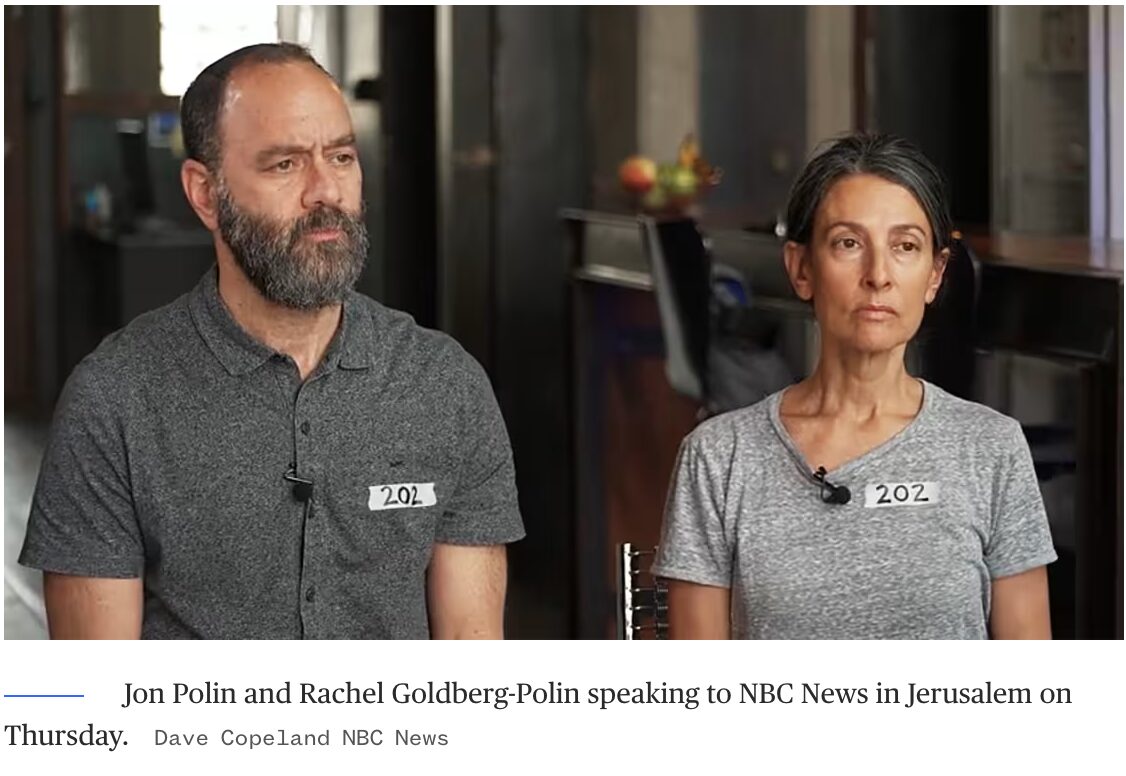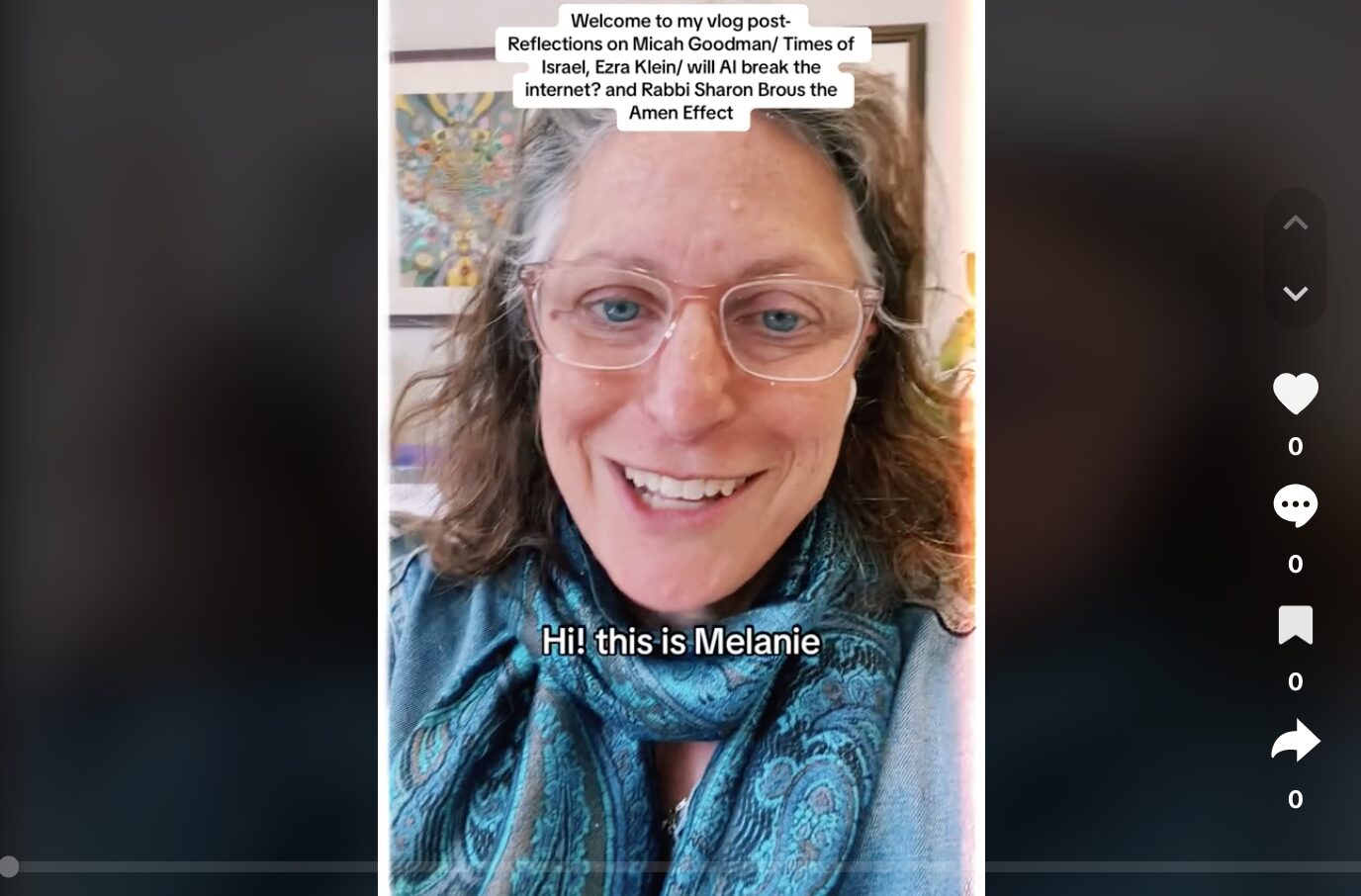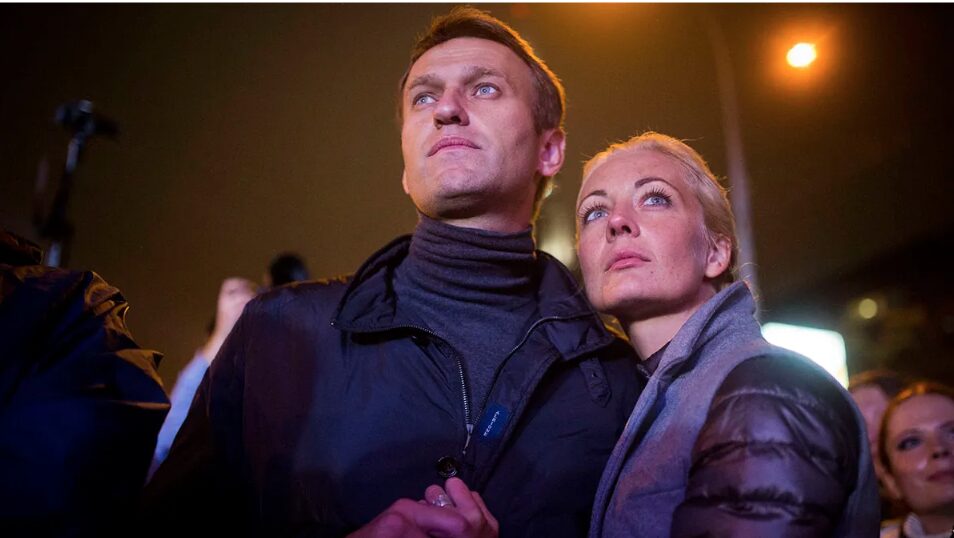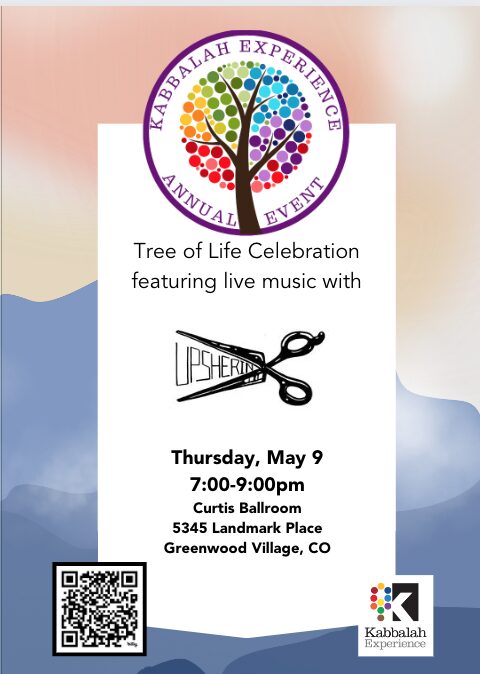Kabbalah entreats us to look for origins, to journey back and discover the source—the seed that starts the flow which results in an outcome.
When you square a number, it has an “exponential” effect (32 x32 =1024) but when you square the number one you return to the source—back to “square one” because 1×1 still equals one. There are times though that we can feel the exponential impact of one person’s ideas or actions—they cascade into a new way of perceiving reality, a new way that society responds.
Think civil rights and bring to mind Rosa Parks. Think of bending a paradigm and bring to mind Copernicus or bending a knee and bring to mind Colin Kaepernick. Think about women driving (in Saudi Arabia) and bring to mind Manal al-Sharif.
Sometimes change indeed comes from the exponential impact of numbers—but if we look for origins, if we journey back to source—it is often just one person who plants the seed that brings about an outcome.
Manal al-Sharif was arrested in 2011 for daring to drive in Saudi Arabia. It was not against the secular law—but it was an accepted and presumed violation of religious law which had created an unyielding taboo against women driving cars. Manal spent nine days in jail. She persisted in her activism, and other women, first a handful, then dozens, then hundreds joined in (driving despite the religious ban) and then thousands signed petitions.
Two weeks ago Manal—the one who started as one and alone, could get into her car in Saudi Arabia along with all the women of her country be behind the wheel—a driving force for gender equality, for gender freedom.
Margaret Mead is oft quoted for her brilliant observation:
“Never doubt that a small group of thoughtful, committed citizens can change the world; indeed, it’s the only thing that ever has.”
When we look for the source of those small (and large ) groups—the source of a movement come to realize that outcomes may need numbers, but they start with one.
“Never doubt that even one person, one thoughtful, committed citizen can change the world.”










9 Comments
Anita Khaldy Kehmeier · November 3, 2018 at 11:09 pm
ONE COUPLE MADE A DIFFERENCE
Christians On The Left And Right Debate The Impact Of Masterpiece Cakeshop Case
JUN 5, 2018
Charlie Craig and David Mullins hold hands as they talk about the U.S. Supreme Court ruling that sets aside a Colorado court decision against a baker who would not make a wedding cake for the same-sex couple, Monday, June 4, 2018.
Even though the Supreme Court sided with Lakewood baker Jack Phillips in the Masterpiece Cakeshop case, the decision steered away from larger questions about religious freedoms and gay rights.
That narrow ruling has left the door open not just to future legal skirmishes, but also to conversations between Christians with different perspectives.
The high court’s opinion was a stinging criticism of the Colorado Civil Rights Commission, which sided with the gay couple four years ago. The justices’ decision heavily hinged on statements made by the commission that they found to be hostile to Jack Phillips’ religious beliefs.
In his opinion for the Supreme Court, Justice Anthony Kennedy singled out one comment made by former commissioner Diann Rice:
“Freedom of religion and religion has been used to justify all kinds of discrimination throughout history, whether it be slavery, whether it be the holocaust, whether it be—I mean, we—we can list hundreds of situations where freedom of religion has been used to justify discrimination. And to me it is one of the most despicable pieces of rhetoric that people can use to—to use their religion to hurt others.”
Statements such as Rice’s moved the needle toward the baker in the court ruling. But they also narrowed the implications of the case, keeping anti-discrimination laws intact and thus protecting the LGBT community’s right to public accommodation.
More: What Makes The Masterpiece Cakeshop Ruling ‘Narrow,’ And What Are The Implications?
But not all conservative Christians see the impact as limited, including Jeff Hunt, the director of the Centennial Institute, a think tank at Colorado Christian University.
“This was seismic in its long-term effects when it comes to religious freedom,” Hunt said. “What this argued is that the government has to treat people of faith equally.”
Hunt strongly disagrees not just with the content of Rice’s statement, but also that it belonged in a hearing.
“You do not have that role in government to determine the validity or sincerity of someone’s religious beliefs,” he said. “Doesn’t matter. It does not matter.”
But Miguel De La Torre, a social ethics professor at Iliff School of Theology and an ordained Southern Baptist minister, does not agree that Rice’s comment was irrelevant, or even untrue.
“First of all, I think it does matter. And secondly, I think the commissioner was 100 percent correct. Religion, especially Eurocentric white Christianity, has been used in this nation’s history to genocide the Indians using the Book of Joshua, Manifest Destiny using the same book, slavery and Jim Crow laws based on Ephesians about ‘slaves obey your masters,'” De La Torre said.
Hunt and De La Torre also have different perspectives on the legitimacy of Phillips’ defense. While Hunt maintains that Phillips was not using religion to discriminate and was exercising his “deeply held beliefs,” De La Torre finds those beliefs irrelevant if they cause others pain.
“I can appreciate his sincere beliefs, but if those sincere beliefs are causing discrimination and oppression, I really could care less about how those beliefs are sincere,” De La Torre said.
More: GOP Seizes On SCOTUS’ Masterpiece Rebuke Of Colorado Civil Rights Commission
The Centennial Institute joined conservative members of the state legislature in debates over the funding and structure of the Civil Rights Commission in the last legislative session. Hunt draws the focus of the case away from gay rights and to the commission’s treatment of Phillips, saying it was “a sword by which it went after people of faith.”
“This case was never about denying public accommodation rights to the LGBT community,” Hunt said. “This was about protecting his freedom of religion.”
Both De La Torre and Hunt know that the battle is far from over, with similar legal cases across the county coming down the pipeline as more states adopt anti-discrimination laws.
“We’re in the midst of this conversation of how in a free society you can hold intention, religious freedom, and also the protected rights of the LGBT community, so that they’re not treated as second class citizens,” Hunt said. “We need to work through that as a nation.”
De La Torre questions the validity of the compromise Hunt presents.
“Can you find common ground between a view that is based on the discrimination of a group of people, and those people demanding to be treated as human beings?” he said.
Masterpiece CakeshopIliff School of TheologyWestern Conservative SummitReligionU.S. Supreme Court (SCOTUS)
Andrea Dukakis
About Andrea Dukakis
andrea.dukakis@cpr.org @adukakis
Andrea Dukakis is a producer/reporter for Colorado Matters on CPR News. She has produced and reported for CPR for more than a decade and prior to joining CPR, she worked at NPR and ABC News’ 20/20.
READ FULL BIO
Colorado Public Radio reserves the right to use the comments we receive, in whole or in part, and to use the commenter’s name and location, in any medium. By commenting below, you agree to these terms. For additional information, please consult our Privacy Policy & Terms of Use as well as our Community Standards.
Anita Khaldy Kehmeier · November 20, 2018 at 5:40 pm
M.A., speaker, sacred activist, author, biologist, conservationist, Zen practitioner and visionary, will share anecdotes, amazing stories and profound lessons gleaned from decades of activism in various justice movements. For example, when incarcerated for peace actions, Kristal learned that racial reconciliation and true oneness can happen when we take on the suffering of the other. Or majestic elephants are highly evolved and have a sense of humor and deep tenderness. Or being awed by a blade of grass inspired her to do nonviolent direct actions on Earth’s behalf.
Kristal suggests that the current challenges we face are a momentous opportunity to participate with the ever evolving bio-spiritual Universe in the creation of a new paradigm; which takes its cues from Mother Earth, Indigenous people, science and non-human nations and is defined by celebration, awe, joy and justice; capable of seeing splendor reflected even in the tiniest ant.
For two years Kristal lived as a hermit in the intimate embrace of a forest and what she learned there guides her vision. Also, she was a “human shield” for disappearing Mayans during Guatemala’s civil war; volunteered in refugee camps in South East Asia; helped end apartheid in South Africa; was imprisoned for peace actions; worked with Ecuadorian tribal people to protect the Amazon rain forest and collaborates with Indigenous people worldwide.
In 2005, she founded Pachyderm Power! Love in Action for Elephants and worked to stop elephant genocide in Kenya for 10 years. Her pivotal work there successfully created a brigade of over 1,000 young people on fire to save elephants. Additionally, she worked 12 years to free Ringling Bros. circus elephants.
Kristal weaves a tapestry of justice woven from the various shades, hues and strands of interconnected liberation movements.
Kristal holds a B.Sc. in Biology and an M.A. in Justice, Peace and Social Transformation.
Anita Khaldy Kehmeier · November 20, 2018 at 5:49 pm
Please buy Kristal Parks amazing book – Re-enchanting the world.
Anita Khaldy Kehmeier · November 24, 2018 at 8:56 pm
Sister Dorothy Stang, American missionary and activist (born June 7, 1931, Dayton, Ohio—died Feb. 12, 2005, Anapu, Pará state, Brazil.), was a staunch champion of peasant farmers in the Amazon rainforest during her 22 years spent helping them to attain a sustainable living, but her advocacy was opposed by ranchers and loggers. Stang, who days before her death had met with Brazil’s human rights secretary to plead for protection for the farmers, was the victim of a contract killing, by 3 hired gun men, hired by the plantation owner. She was walking down a dirt road and they shot her. She had a bible in her hand and she started reading,” blessed are the peace makers.”Following her death, Pres. Luiz Inácio Lula da Silva created two vast Amazonian forest preserves and sent 2,000 troops to the troubled region.
Anita Khaldy Kehmeier · November 25, 2018 at 8:24 am
For years I have spoken out about how fishy the official story of Thomas Merton’s sudden death smelled to me. I have also, over the years, met three CIA agents who were present in Southeast Asia at the time and asked them pointedly whether they killed Thomas Merton. One said: “I will neither affirm it nor deny it.” The second (who spoke to a friend of mine, not to me) said: “We were swimming in cash at the time with absolutely no accountability. If there was just one agent who felt Merton was a threat to the country he could have had him done in with no questions asked.” The third I met a month after my book A Way To God: Thomas Merton’s Creation Spirituality Journey came out and he answered: “Yes. And the last 40 years of my life I have been cleansing my soul from what I did as a young man working for the CIA in Southeast Asia in the 1960s.”
Now, Hugh Turley and David Martin offer The Martyrdom of Thomas Merton: An Investigation – a solid and very convincing investigation that provides what seems to be a thorough inquiry of all the parties involved including the four religious (three men and one sister who was also a doctor, falsely called a “nurse” in official documents) who first discovered the body.
The book includes important information about the body and the room, revealing, among other things, that there was blood coming from Merton’s neck and his body was neatly staged. How could this be anything other than 1) a gunshot wound from a silencer gun? or 2) A stab with a pick knife or something similar? The problem is, of course, that no autopsy was performed. Now whose decision was that?
The cover up was immense, involving the Thai police (very much in league with the American military at the time); the American Embassy; the American Army; even key members of Merton’s Gethsamine monastery including the abbot and Merton’s secretary, Brother Hart. The latter two deserve a certain leniency since surely the monastery was threatened and urged to keep silent about the facts. But to make a cover story—that Merton stepped out of a shower soaking wet and plugged in a fan and was electrocuted—is a lie and a cover up.
Turley and Martin provide detail after detail refuting the false information that has been disseminated for five decades. There is even a Judas figure—a Belgian monk, whose room in the retreat center was above Merton’s, and who was the last person seen talking to Merton before he entered his fateful cell. Others report this monk acting peculiarly after the murder. Strange to tell—or perhaps not so strange—he seems to have totally disappeared. Even his monastery claims to have no idea on earth where he could be. It would seem he is either 1) sipping mai-tais on some island some place having been paid far more than 30 pieces of silver or 2) resting not at all in peace six feet under the sod.
So Thomas Merton, Cistercian monk and one of the greatest spiritual writers of the twentieth century, died a martyr. A martyr to peace (because he was a loud voice against the Vietnam War and a mentor to the Berrigan brothers and others committed to nonviolent protest). And he died at the hands of the American government in the very year, 1968, that Martin Luther King Jr and Robert Kennedy also suffered a similar fate.
Pope Francis, who praised Thomas Merton’s work in his speech to Congress, might want to canonize three American martyrs together and do it swiftly (since in Catholic theology a martyr goes directly to heaven): Dr Martin Luther King Jr, a prophet for social and racial justice; Thomas Merton, a prophet for peace and deep ecumenism or interfaith; and Sister Dorothy Stang, a prophet for eco-justice gunned down in the Amazon by paid thugs for large land owners and corporate big shots.
History evolves and it is ironic that today’s CIA is less an enemy of the people than yesterday’s – in fact acting in some ways a welcome buffer against today’s enemies of American democracy, whether emanating from Russia or from internal bodies beholden to Russia. But lessons abound. First among them is what a martyr is about: As Jesus put it, “no greater love has a person than this, to lay down one’s life for their friends.”
Thank you, Thomas Merton. Thank you Hugh Turley and David Martin for getting to the truth. Through out his life Merton consistently maintained an anti war mentality. He wrote a series of books,begining with an essay published in The Catholic Worker newspaper entitled.”the roots of war.”He then took on the full measure of the atomic threat in 1961.He penned a flurry of letters to activists, intellectuals,friends…111 “cold war” letters….a spiritual chain reaction counter to the bomb.The FBI sent Merton several threats. He was to attend a retreat with Dr Martin Luther king and Thich That Hanh. King called and canceled, as he told Merton that he was needed in Memphis. King was assassinated in Memphis. Merton wondered how life would have been different, had King instead attended the retreat with his friends. Merton wrote a book in Ghandi. Merton was addressing the dilemma of weaponry capable of destroying life on earth. Daniel Ellsberg has come out with an eye opening book called,”Dooms day Machine” Confessions of a nuclear war planner, and father of American whistle blowing. He writes an eye witnessing expose of the dangers of America’s top secret, seventy year long nuclear policy that continues today. When you read Ellsberg’s book, you understand why Thomas merton was so vocal and an activist against war and the nuclear build up.
Here you have Thomas Merton and Daniel Ellsberg who have single handedly made huge differences. And on was martyred for his anti war stance.
Anita Khaldy Kehmeier · November 25, 2018 at 8:37 am
You will not simply gain a better appreciation for your capabilities, but you will realize that you are a “priceless” commodity.
After reading this poem, you will certainly be empowered to develop and comfortably display your talents to the world, without fear of judgment.
Williamson reminds you that you shouldn’t fear the brightness of your own light (skill, ability, talent, accomplishment); never hide it under a bushel.
Instead let it shine and inspire others to do the same and together you can stamp out darkness and keep the world aglow with success, joy and happiness.
Our Deepest Fear
By Marianne Williamson
Our deepest fear is not that we are inadequate.
Our deepest fear is that we are powerful beyond measure.
It is our light, not our darkness
That most frightens us.We ask ourselves
Who am I to be brilliant, gorgeous, talented, fabulous?
Actually, who are you not to be?
You are a child of God.Your playing small
Does not serve the world.
There’s nothing enlightened about shrinking
So that other people won’t feel insecure around you.We are all meant to shine,
As children do.
We were born to make manifest
The glory of God that is within us.It’s not just in some of us;
It’s in everyone.And as we let our own light shine,
We unconsciously give other people permission to do the same.
As we’re liberated from our own fear,
Our presence automatically liberates others.
Anita Khaldy Kehmeier · November 26, 2018 at 10:29 am
Go see the movie – Maria by Callas-She was a genius in her field.
Documentary is deliciously sensuous portrait of late opera superstar
Nov 23, 2018
By Ann Hornaday, Washington Post
For anyone going through withdrawal after seeing “Bohemian Rhapsody,” may I present for your consideration “Maria by Callas”? In this immersive, often deliciously sensuous documentary portrait of the late opera star Maria Callas, viewers are treated to another rise-and-fall story of a great but tortured artist, this one punctuated by the occasional real-life bed of roses and pleasure cruise.
For those too young to know who Maria Callas was, a trip to YouTube or Wikipedia will bring you up to speed: Long before Luciano Pavarotti and Plácido Domingo, she was that rare opera singer who was also a household name, as famous for her striking beauty and effortless glamour as for her tonal range and lyrical interpretive skills. To observe the New York-born Callas arriving in Rome or Milan or Paris or New York, in a cloud of furs, flowers, poodles and pearls, is to understand the fundamentals of diva style, imitated but never equaled by such successors as Madonna, Rihanna and, most recently, Lady Gaga.
Callas’ command of her own persona is on regal, extravagant display in Tom Volf’s film, in which the director uses the subject’s own words — from letters, diary entries, television interviews and her own memoirs — to narrate a succession of ravishing, rarely seen images, including some of her most famous (and notorious) performances, and candid footage of costume fittings and home movies.
What emerges is a portrait of a woman of extraordinary natural gifts and work ethic, who was pressured to become a superstar by her mother and then her husband, instead of a conventional homemaker and mother. “Destiny is destiny,” she says resignedly at one point. “There’s no way out.” When she falls ill and cancels performances, or is fired from the Metropolitan Opera because of conflicts with its director, the viewer wonders if it’s not her way of retreating from a profession she never truly chose in the first place.
ADVERTISING
Anita Khaldy Kehmeier · December 12, 2018 at 4:13 pm
AMY GOODMAN: We’re broadcasting from the U.N. climate summit in Katowice, Poland, where world leaders are gathered to negotiate climate solutions that could dictate policy for years to come. But we begin today’s program with a climate activist who says politicians here are not doing enough to turn back the clock and prevent catastrophic climate change: 15-year-old Greta Thunberg.
She’s made international headlines since launching a school strike against climate change in her home country of Sweden earlier this year. She sat on the steps of the parliament in Stockholm every school day for three weeks, leading up to the Swedish election in September, to demand that politicians take more radical action to stop global warming. After the election, she went back to school, but only for four days a week, because every Friday Greta continues to sit outside the parliament building. Her actions have inspired thousands of students across the globe to do the same. Greta has Asperger’s syndrome. She has focused with laser intensity on climate change since she was 9 years old. She brought her message directly to world leaders here in Katowice at the U.N. climate summit. Here she is addressing U.N. Secretary-General António Guterres last week.
GRETA THUNBERG: For 25 years, countless of people have stood in front of the United Nations climate conferences asking our nations’ leaders to stop the emissions. But clearly this has not worked, since the emissions just continue to rise. So I will not ask them anything. Instead, I will ask the people around the world to realize that our political leaders have failed us, because we are facing an existential threat and there is no time to continue down this road of madness.
Rich countries like Sweden need to start reducing emissions by at least 15 percent every year to stay below a 2-degree warming target. You would think the media and every one of our leaders would be talking about nothing else, but they never even mention it. Nor does hardly anyone ever mention that we are in the midst of the sixth mass extinction, with up to 200 species going extinct every single day. Furthermore does no one ever speak about the aspect of equity, clearly stated in the Paris Agreement, which is absolutely necessary to make it work on a global scale. That means that rich countries like mine need to get down to zero emissions within six to 12 years, with today’s emission speed. Because how can we expect countries like India, Colombia or Nigeria to care about the climate crisis if we, who already have everything, don’t care even a second about our actual commitments to the Paris Agreement?
So, when school started in August this year, I sat myself down on the ground outside the Swedish parliament. I school-striked for the climate. Some people say that I should be in school instead. Some people say that I should study to become a climate scientist so that I can “solve” the climate crisis. But the climate crisis has already been solved. We already have all the facts and solutions. And why should I be studying for a future that soon may be no more, when no one is doing anything to save that future? And what is the point of learning facts when the most important facts clearly means nothing to our society?
Today we use 100 million barrels of oil every single day. There are no politics to change that. There are no rules to keep that oil in the ground. So we can no longer save the world by playing by the rules, because the rules have to be changed. So we have not come here to beg the world leaders to care for our future. They have ignored us in the past, and they will ignore us again. We have come here to let them know that change is coming, whether they like it or not. The people will rise to the challenge. And since our leaders are behaving like children, we will have to take the responsibility they should have taken long ago. Thank you.
AMY GOODMAN: That was Greta Thunberg addressing the United Nations here in Katowice, Poland. Renowned climate activist Kevin Anderson tweeted, “On climate change @GretaThunberg demonstrates more clarity & leadership in one speech than a quarter of a century of the combined contributions of so called world leaders. Wilful ignorance & lies have overseen a 65% rise in CO2 since 1990. Time to hand over the baton,” he tweeted.
Anita Khaldy Kehmeier · February 27, 2019 at 1:10 pm
TAWAKKOL KARMAN
Yemen, 2011
Tawakkol Karman was known as “The Mother of the Revolution” and was awarded the Nobel Peace Prize in 2011 in recognition of her work in nonviolent struggle for the safety of women and for women’s rights to full participation in peacebuilding work in Yemen. Upon being awarded the prize, Tawakkol became the first Yemeni, the first Arab woman, and the second Muslim woman to win a Nobel Peace Prize, as well as the youngest Nobel Peace Laureate at the time, at the age of 32.
Karman is a mother of three as well as a human rights activist, journalist, politician, and senior member of the Al-Islah political party.
Tawakkol was born in 1979 in Taiz, Yemen’s third largest city. She studied an undergraduate degree in Commerce from the University of Science and Technology in Sana’a before completing a graduate degree in Political Science from the University of Sana’a.
Growing up in a politically tumultuous country, Tawakkol witnessed the unification of North and South Yemen in 1990, followed by a civil war between the two factions in 1994 in which the North triumphed over the South. The civil war led to dissidence in the South as the repressive Northern government assumed control over the country.
A journalist by profession and human rights activist by nature, Tawakkol responded to the political instability and human rights abuses in Yemen by mobilizing others and reporting on injustices. In 2005, she founded the organization Women Journalists Without Chains, (WJWC) which advocates for rights and freedoms and provides media skills to journalists. In addition, the organization produces regular reports on human rights abuses in Yemen, documenting more than 50 cases of attacks and unfair sentences against newspapers and writers to date.
In 2007, Tawakkol began organizing weekly protests in Yemen’s capitol, Sana’a, targeting systemic government repression and calling for inquiries into corruption and other forms of social and legal injustice. Tawakkol’s weekly protests continued until 2011, when she redirected protesters to support the Arab Spring. Tawakkol even brought Yemen’s revolution to New York speaking directly with UN Secretary General Ban Ki-Moon and organizing rallies at the UN headquarters.
Bold and outspoken, Tawakkol has been imprisoned on a number of occasions for her pro-democracy, pro-human rights protests. Amongst Yemen’s opposition movement, she is known as “mother of the revolution” and “the iron woman.”
Since receiving the award, Tawakkol has continued to support female journalists and rally Yemenis against government corruption and injustice. Fiercely committed to change, Tawakkol spends the majority of her time in a tent in Change Square, where she continues her peaceful protests for justice and freedom.
“You have to be strong; you have to trust yourself that you can build a new country. You have to know that you have the ability to achieve your dream.”